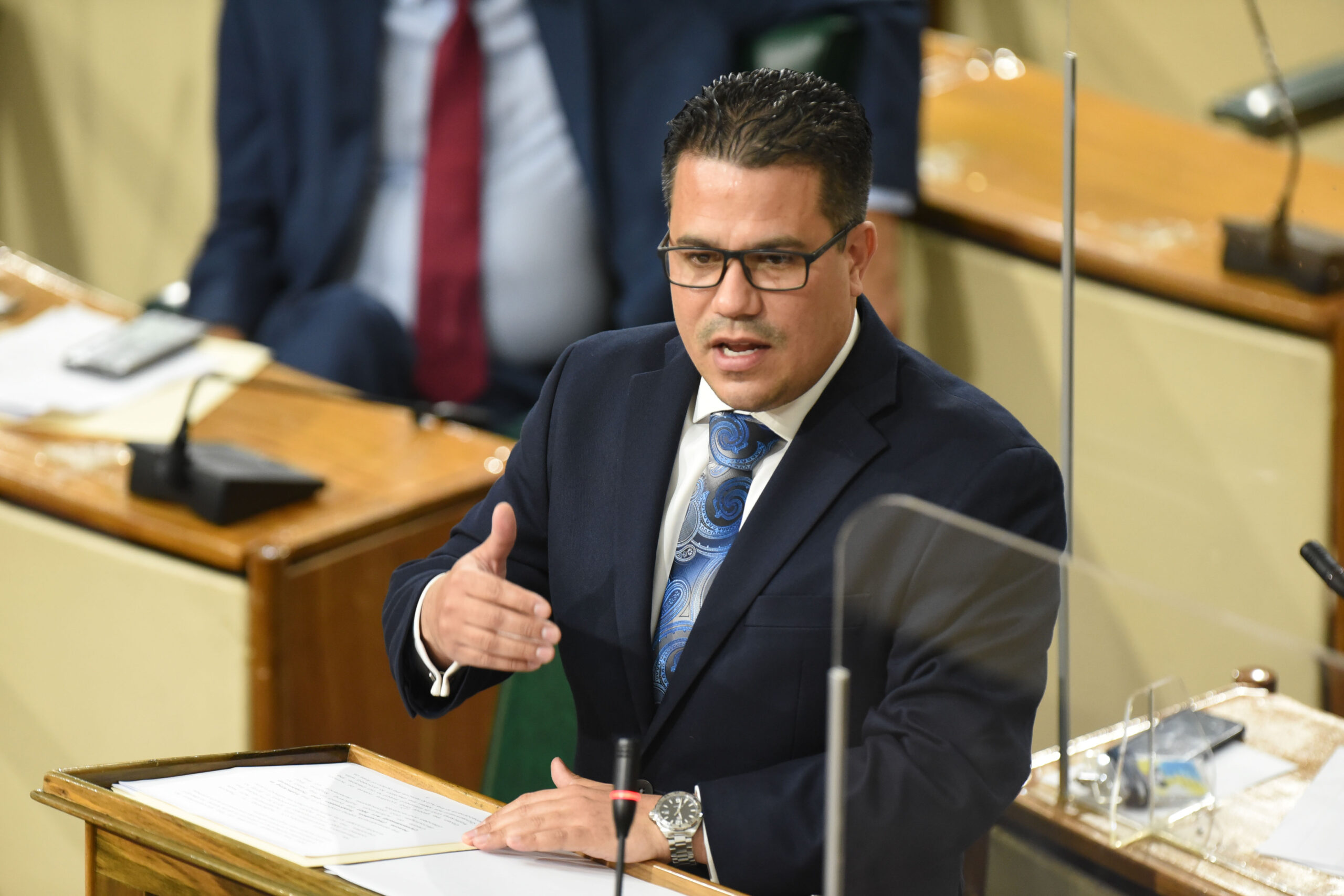#Jamaica, November 16, 2021 – Minister without Portfolio in the Ministry of National Security, Senator the Hon. Matthew Samuda, says the Government is committed to continuously strengthening legislation to tackle the scourge of human trafficking in Jamaica.
“If we consider our history in trying to manage this global scourge, since 2007… many within the bureaucracy have worked tirelessly to ensure that we continue to make a more robust framework to deal with this issue,” Senator Samuda said.
He was speaking during Friday’s (November 12) sitting of the Senate while piloting the Trafficking in Persons (Prevention, Suppression and Punishment) (Amendment) Act, 2021. The Bill was approved without amendment.
Senator Samuda said work has continued under successive Administrations “to ensure that we get on top of this scourge.” He emphasised that this is crucial given Jamaica’s geographic location which places the country at risk of being exploited as a transit point and destination for human trafficking.
“Given the global and lucrative nature of human trafficking and its imminent threat to our people, the Government has taken the decision to proceed with amendments to the Act to remove the option of fines as a penalty for certain offences that are egregious in nature,” he said.
He noted that the Government is also looking to increase fines for the offence of threatening and obstructing a constable, from $250,000 to $1 million.
“Additionally, the amended Act creates a provision that empowers the Minister, by order subject to affirmative resolution, to make amendments to [the] monetary penalties,” Senator Samuda said.
He emphasised that the proposed amendments are timely as they reaffirm Jamaica’s commitment “to the appraisal of the United Nations Global Plan of Action to Combat Trafficking in Persons, and the strategic priorities of the Government to criminalise trafficking in persons in all its forms, to disrupt and dismantle criminal networks involved in such crimes, and to forfeit their ill-gotten gains.”
of the United Nations Global Plan of Action to Combat Trafficking in Persons, and the strategic priorities of the Government to criminalise trafficking in persons in all its forms, to disrupt and dismantle criminal networks involved in such crimes, and to forfeit their ill-gotten gains.”
“We will make these amendments and continue to strive for the rooting out of trafficking in persons, certainly within Jamaica, and playing our part in our region, not just because of international commitments, not just because it is a global scourge, but because of our own history and our own rejection of such crimes,” he further stated.
Senator Samuda noted that human trafficking is an “extremely lucrative” international crime which, according to the International Labour Organization (ILO), generates approximately US$150 billion globally each year by preying on the vulnerable, including children, women, and marginalised persons.
“[Human trafficking] victims are subjected to unspeakable violations and harm. Fifty per cent of detected victims were trafficked for sexual exploitation, [and] 38 per cent were exploited for forced labour. Other victims are forced into marriage, begging, criminal acts, and armed combat,” he said.
Senator Samuda stressed that, universally, Administrations must reinforce legislation and policy parameters to combat the real and present threats posed by human trafficking, especially in light of the novel coronavirus (COVID-19) pandemic.
“We must also acknowledge the urgency for these particular amendments when we contend with the [issue)] of COVID-19 and its economic effect making the most vulnerable within our society even more vulnerable to these threats,” he said.
The Senator told the Upper House that in February this year, the United Nations Office on Drugs and Crime reported that since the pandemic’s onset, the overall incidence human trafficking has worsened. He said the agency further indicated that the number of children among the detected victims tripled, with the ratio of boys increasing five-fold over the past 15 years.
Senator Samuda pointed out that consequent on these scenarios, the proposed amendments to the Trafficking in Persons (Prevention, Suppression and Punishment) (Amendment) Act, 2021 are based on the need to create an Anti-Human Trafficking regime that discourages and promulgates deterrence of the offenders and recidivists.
The Trafficking in Persons (Prevention, Suppression and Punishment) Act was passed in 2007 and amended in 2013 to increase the penalties.
It was again amended in 2018 to enable a judge to try trafficking offences without a jury.
The 2021 amended Bill was passed in the Lower House on November 3 with two amendments.
Contact: Alecia Smith
Release: JIS


 Caribbean News7 days ago
Caribbean News7 days ago
 Caribbean News7 days ago
Caribbean News7 days ago
 Caribbean News1 week ago
Caribbean News1 week ago
 Caribbean News7 days ago
Caribbean News7 days ago
 Bahamas News7 days ago
Bahamas News7 days ago
 News7 days ago
News7 days ago
 Bahamas News1 week ago
Bahamas News1 week ago
 News7 days ago
News7 days ago











